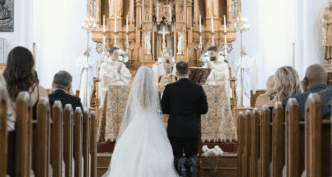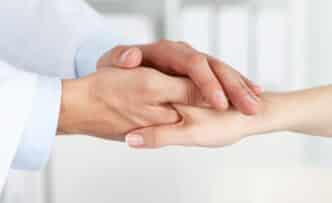One might assume that the soul would be a more controversial topic than the body in Catholic teaching, given that it is invisible and hard to imagine. Nevertheless, when St. Paul was preaching to the Athenians, their main objection came after he revealed the doctrine that we would all rise again — with our bodies!
Now, what causes us daily griefs? Physical ailments, being tired, needing to hydrate, needing to go to the bathroom when we are busy, weight gain — do we want this mortal coil forever? Yet it is an article of our faith that we were made bodily and, after a brief separation, our souls will be reunited with our beloved bodies forever.
A love-hate relationship
As with many things in a culture that has been formed by Christianity but has lost the fuller, integrated sense of it, we are constantly bouncing back and forth between an inordinate love of our bodies and the other extreme of hating them. The former causes the latter.
You can’t hate something you don’t first love, and our image-saturated culture loves to show us bodies. Many of our readers can surely sympathize; my body doesn’t look Instagram-ready all the time. For the body-obsessed, countless hours are spent on hair and makeup and in the gym. Nevertheless, ol’ Grim Reaper will come for the chiseled as well as the flabby, and gravity will take its toll. The massive growth of the Botox and plastic surgery industry fights back, but to no avail.
Bodies are a gift
So what is to be done? First, we must learn to love our bodies as they are, not as they aren’t. God gave us our body, and we are, in part, our body, so we just gotta learn to love it. Our body is the means by which we encounter God, nature and all that we love. Christ gives us his body and does not recoil to enter our bodies — wherever they are at — in the Eucharist. Second, we want to cultivate the gift of our body within reason, which means exercising temperance and moderation to regulate our intake and responsibly activate our mobility to continually foster what the body is made for.
Our bodies are, of course, tied to our mental health, so we need sunlight and activity and good food and good rest. We also need some creature comforts, in moderation, to ease the journey through this vale of tears. At the same time, we sometimes need to ascetically deny ourselves those comforts to keep ourselves disciplined and ordered towards higher goods.
We are also called to use our bodies in prayer: standing, kneeling, raising our arms, laying prostrate. St. Dominic had nine different postures of prayer.
We must love our bodies, but also be detached from them. In that sense, we are called to reasonably cultivate good habits that foster healthy functioning throughout our body, our emotions and our rational nature.








